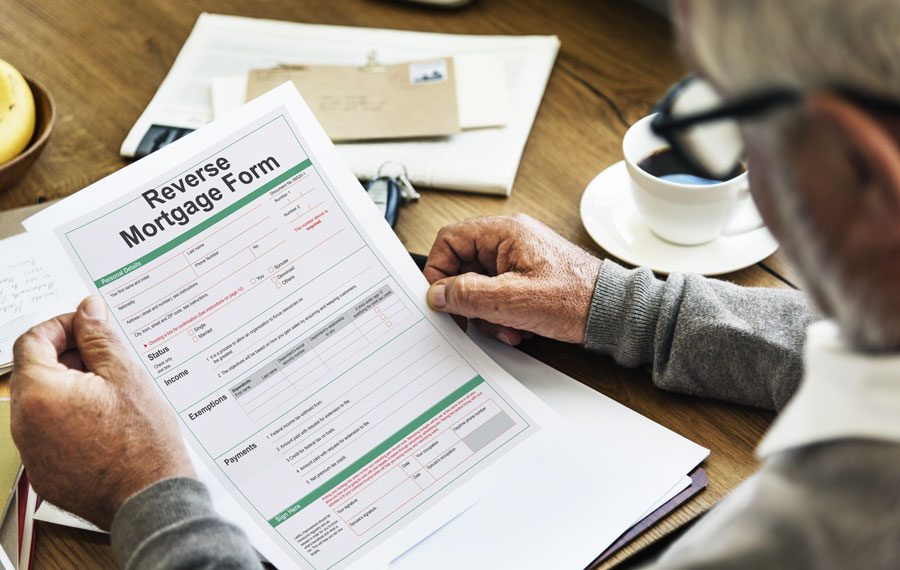
DENVER, CO – The coronavirus outbreak sweeping the United States is not only having a chilling impact upon human life (currently there are over 1 million confirmed cases and nearly 60,000 deaths), but it’s also taking a significant toll upon the economy as well. With businesses deemed “non-essential” having been forced to close with strict “stay-at-home” orders in place, over 26 million people have been out of work and have filed for unemployment to date. As a result, many people – particularly when it comes to seniors – have been feeling the pinch and are looking to supplement their reduced income. For many, ‘reverse mortgages’ have become more attractive.
A reverse mortgage is a loan available to seniors age 62 or older that converts a portion of the equity they have built up in their home into cash that they don’t have to pay back until the property is sold or the current occupants pass away. The loan, typically guaranteed by the Federal Housing Administration (FHA), can be used to pay bills and debts, take vacations, or anything else they deem necessary, for the rest of their lives. Reverse mortgages do not have monthly payments associated with them; however, homeowners are responsible only for property taxes, insurance and home maintenance costs. In addition, reverse mortgages can pay the homeowner each month, bulking up the amount of actual income being received, and it’s tax-free income.
While many people have been hit hard by the effects of the coronavirus pandemic, seniors have been particularly vulnerable. Some of those who have invested hard earned funds over the years to increase the size of their retirement nest-egg have experiencing huge losses as COVID-19 – the respiratory ailment caused by coronavirus exposure which is mostly effecting those in their later years or whom have underlying health issues – has played havoc with the stock market. However, at least for seniors, there exists financial relief after the depreciation of their retirement monies have evaporated; their home equity they have been building for many years – and it is ripe for tapping.
For instance, according to reports, the number of seniors turning to reverse mortgages since COVID-19 hit the United States has jumped up by as much as 30 percent; this follows a stretch of time where homes typically experienced ongoing increased value. As of now, property values and appraisals are still at high levels nationwide, but it is uncertain how long those homes will retain their increased value if the economic impact of the pandemic begins to effect real estate prices. Those who are interested in obtaining the benefits of a reverse mortgage could be looking at quite a different situation if their homes reduce in value. In other words, if a global recession ends up occurring, it could result in a plummet of property values, and seniors interested in a reverse mortgage will not have the same amount of home equity to utilize, resulting in less money available.
Among the top 10 lenders in the country, 7 reported a downtick in business due to COVID-19 related issues in March 2020; however, however, three have noted large increases in the number of reverse mortgages they have funded. For instance, American Advisors Group (AAG), one of the largest reverse mortgage providers in the U.S., reported a total of 799 loans for the month, with that number including an increase of 108 from February – representing a 15.63 percent month-to-month jump. Fairway Independent Mortgage Corporation, another large reverse mortgage provider, noted a 31 percent increase to 197 loans and High-Tech Lending, a 38 percent increase to 47 loans. Clearly, there exists a recent upward trend in the number of people seeking reverse mortgages.
For those who are feeling the pinch but have decided against a reverse mortgage, there are additional relief options available. The FHA recently rolled out new options to assist homeowners amid the ongoing pandemic. Among these options are the ability for borrowers enduring money issues specifically related to COVID-19 to defer their mortgage payments for up to 12 months, as well as the ability to wait until their mortgage is paid off to pay the complete amount of their forbearance period.
“Effective immediately for borrowers with a financial hardship that makes them unable to pay their mortgage due to the COVID-19 National Emergency, mortgage servicers must extend deferred or reduced mortgage payment options – called forbearance – for up to six months, and must provide an additional six months of forbearance if requested by the borrower,” HUD and the FHA said Thursday.
The relief options are part of the Coronavirus Aid, Relief, and Economic Security Act (THE CARES ACT), which President Donald Trump signed into law just this week on March 27, 2020.
“The last thing any of us wants is for Americans to lose their homes unnecessarily while we continue to fight this invisible enemy,” Ben Carson, United States Secretary of Housing and Urban Development said. “The FHA will continue to work with stakeholders to ensure that the loss mitigation options that are offered for both forward and reverse borrowers are appropriately tailored for the present situation.”



Comments are closed.